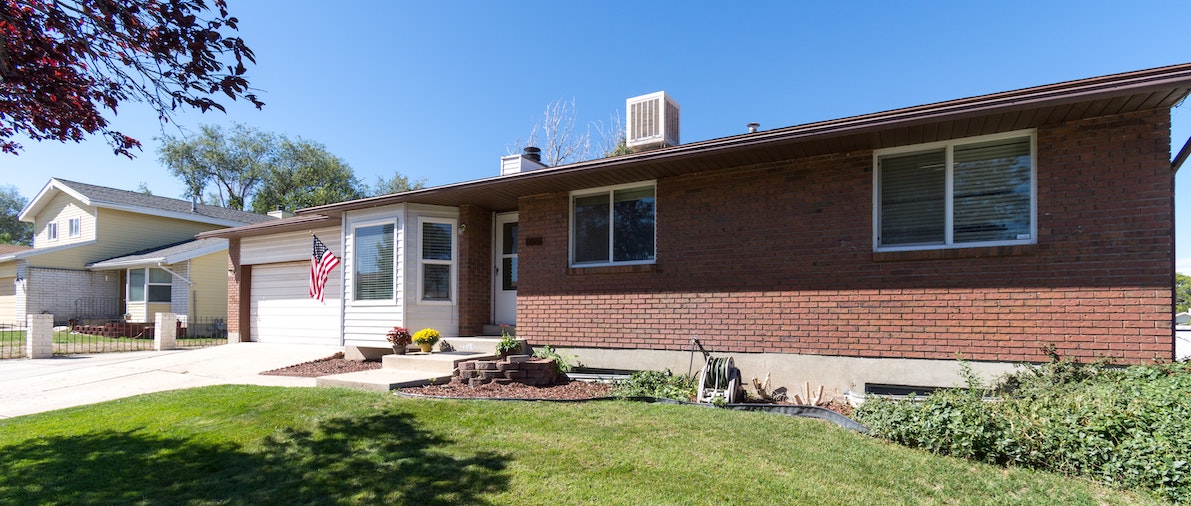Real Estate Investing
Tax Strategies for Rental Investors: 5 Ways To Make A Home Less Taxing
Last Updated May 31, 2022


Table Of Contents
- 5 key tax strategies for rental property investors
- Strategy #1: Keep accurate records of all expenses
- Strategy #2: Offset your income with the depreciation of your rental property
- Strategy #3: Limit capital gains on the sale
- Strategy #4: Defer capital gains by investing in a Qualified Opportunity Zone
- Strategy #5: Defer capital gains by replacing investment properties with another when selling
- Simplifying tax time for real estate investors
Did you know that letting your family and friends stay in your rental property could change your tax deductions? Or that if you’ve lived in the home in the past five years, you may be exempt from capital gains tax? There are plenty of tax benefits when it comes to your rental property, but how you use and even change the home can influence what you can and can’t claim. This article will cover five tax strategies that all rental property investors should be aware of.
This article helps to highlight five tax strategies that rental property investors should be aware of, but should not be considered financial advice. Please speak to an accountant or financial advisor to discuss your individual situation and eligibility.
5 key tax strategies for rental property investors
Strategy #1: Keep accurate records of all expenses
Investment properties attract a range of tax deductions, but to make use of this strategy you will need to ensure that you keep accurate records of spending and that expenses are necessary to operate your property as a rental home.
There is a difference between necessities and ‘nice to haves’, which are not claimable. For example, if you repaired a broken heater, this is a claimable tax deduction. If you decided to upgrade the property by installing a new HVAC system, that would be considered a ‘capital improvement’ to increase the value of the home and doesn’t qualify as essential repairs and maintenance. Capital improvements need to be claimed under depreciation, which we will cover next.
It’s also important to note that deductions only apply to properties used as rental investments, not any personal use. That means if you use the property for family holidays or your Great-Uncle Donny moves in for a couple of months, you won’t be able to claim any expenses related to those periods.
The simplest way to make use of the full tax deductions available is to find a long-term resident to rent your home.
Common tax deductions for rental properties include:
- Interest paid on a mortgage on a rental property
- Property taxes
- Homeowner’s insurance premiums
- Professional fees for advice and assistance on your rental property, including accountants, property management fees, Belong fees, and legal advice
- Any utilities you cover on behalf of rental residents, such as electricity, landscaping
- Necessary repairs and regular maintenance
Strategy #2: Offset your income with the depreciation of your rental property
While there are plenty of necessary items you can claim on tax, you can’t deduct your mortgage or principal payments, or the cost of things like furniture, fixtures, or improvements as an expense. What you can do, however, is deduct the decline in value on the part of the property used for rental purposes. This can be used to offset your income and lower tax liability on capital gains from the investment.
Known as depreciation, it’s one of the most appealing and impactful tax strategies for rental property owners. Depreciation allows you to deduct costs associated with buying and improving your rental property. Rather than happening in one big deduction, depreciation distributes the cost over the functional life of the property (calculated at 27.5 years).
An accountant can help you work out the nitty-gritty details of what you can and can’t claim, but to summarize, there are a few important factors that the IRS considers with depreciation:
- Most items that are 10-20 years old are worth less than when they are brand new, but for homes, they usually appreciate over time. This is due largely to the land value. For this reason, depreciation only applies to the usable home structure that is in service as a rental, so you will need to calculate the cost/value of the building excluding the land value. This value of the house, regardless of condition, is divided by 27.5 to calculate the annual depreciation of your real estate investment.
- A rental property can’t be depreciated if you stop using it as a rental in the same year. So if you sell it, the structure is destroyed/abandoned, or you take it out of service for personal use, you will not be eligible to claim depreciation in that year.
- You can continue to claim a depreciation deduction for property that's temporarily not in use, for example during vacancies between residents or if you are making repairs/improvements to a property in preparation for the next resident.
- Capital improvements made to the house (e.g. a new deck, renovated kitchen, installing an HVAC system) need to be added to the value of the property and can also be depreciated as they make up the value of your home, rather than being a necessary expense. Add the amount an improvement costs you, including any amount borrowed, labor and material costs, as well as consulting expenses such as architect fees or surveying.
- Depreciation reduces your basis for figuring gain or loss on a later sale or exchange.
Strategy #3: Limit capital gains on the sale
If you have lived in your home before putting it on the rental market, you could be exempt from capital gains when it comes time to sell. Homeowners are exempt from up to $250k (if single) and $500k (if married) of capital gains on the sale of a primary residence. In order to qualify as a primary residence, you must have occupied the home for two of the last five years, though they need not be consecutive. Spouses filing jointly must both have occupied the property. This exemption is only allowable once every two years.
If you’ve never lived in the home or don’t qualify for the exemption, you can limit your tax liability by keeping good records of all improvements made to the home. As mentioned above, this is because they can be used under depreciation to reduce capital gain.
Strategy #4: Defer capital gains by investing in a Qualified Opportunity Zone
You can defer capital gains if you reinvest in a rental property in communities that are in need of economic stimulation and job creation. This is because in 2017, the Tax Cuts and Jobs Acts created a tax incentive to support investment in these communities. Investments include properties for lease, so long as the lease is at market rate and entered into after December 31, 2017.
There are over 8,000 communities across all 50 states that are certified as Qualified Opportunity Zones, including ~800 in California). You can search for addresses on a map, here.
There is additional paperwork required to elect to defer tax on eligible gains invested in Qualified Opportunity Zones, so make sure you speak to an accountant for assistance on how to complete these forms and get up to speed with a financial advisor before making any decisions on investing. The IRS also has an FAQ page on Opportunity Zones here.
Strategy #5: Defer capital gains by replacing investment properties with another when selling
If you sell an investment property for more than its depreciated value, you may be required to “recapture” the depreciation. This means the amount of depreciation will be included in your taxable income from the sale of the property.
With a big jump in housing value over the past few years, if you sell a real estate investment now, it’s very likely you will pay capital gains tax. But if you buy another similar property to replace it, you could be eligible for a 1031 exchange or “like-kind” exchange.
The advantage of a 1031 exchange is that it lets you defer capital gains tax, so you have more net cash to invest in a replacement property.
Homeowners use a 1031 exchange for a number of reasons, including:
- Buying a property that promises to offer a better return;
- Diversifying assets; and
- Deferring taxes.
You can find more information on 1031 exchanges in an article we wrote here, or speak to an accountant or financial advisor about your circumstances.
Simplifying tax time for real estate investors
Managing the paperwork and tracking expenses from a rental property gets complicated fast. Especially if you own more than one home or decide to manage the work yourself. By partnering with a modern company like Belong, everything gets easier.
When tax time comes around, your income and expenses will be simple to calculate because you always know exactly where you stand. With guaranteed rent in place, you will know precisely what your rental income looks like (regardless of when residents pay). And you won’t find yourself getting tripped up by a string of unexpected expenses. Find out if your rental home qualifies at belonghome.com/homeowners.
About The Author
Tyler Infelise
Co-Founder & Head of Product
I co-founded Belong because I'm on personal mission to eliminate stressful, anxiety-filled experiences for others. I lead the product team here, bringing with me 10+ years of product management and marketing experience. Prior to Belong, I built a company called Beepi with my cofounders. I am a big foodie, love movies of all kinds, and live for March Madness basketball.




